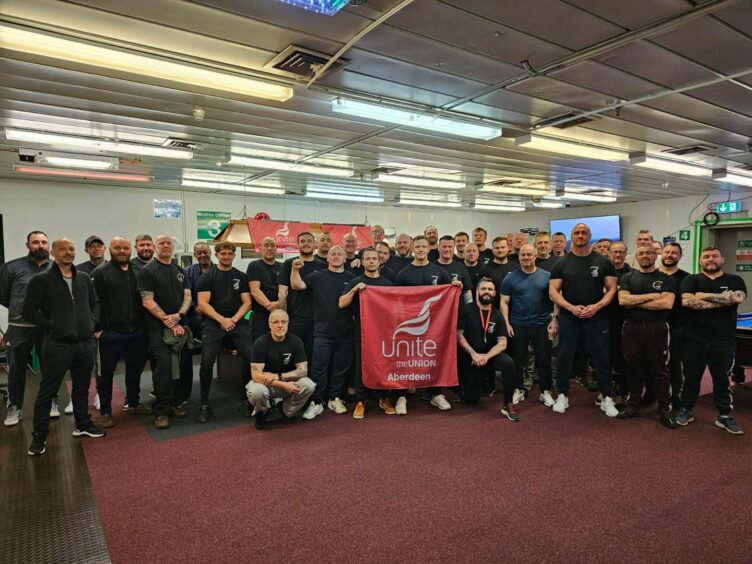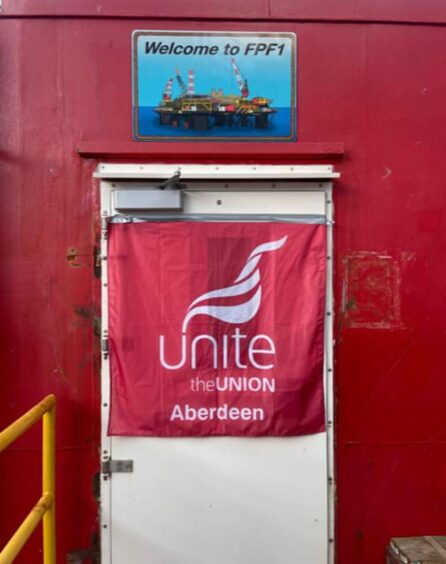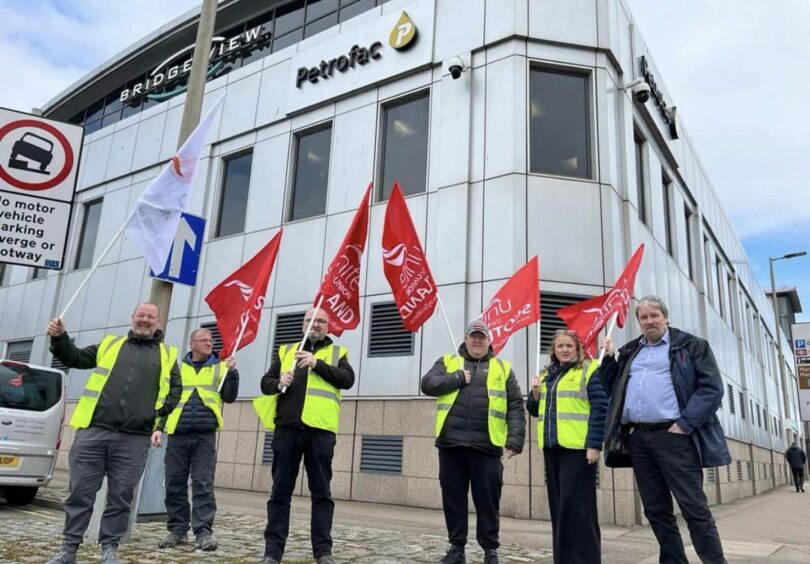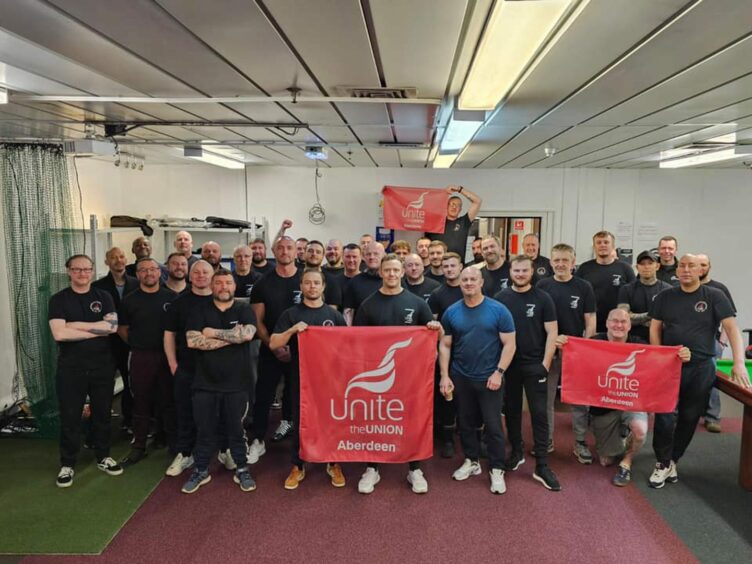
North Sea workers employed by Wood, Petrofac, Stork and Sparrows, have downed tools as part of a second wave of strike action coordinated by Unite the Union.
The dispute continues to centre on the demand for an increase in the basic rate of pay and working condition as 1,200 people take industrial action.
Workers will be taking industrial action across a number of platforms, operated by different firms.
However, Sparrows workers stationed on BP and EnQuest assets have accepted an offer and will no longer be striking.
There are still 200 offshore members of Unite the Union employed by Sparrows taking industrial action alongside 650 Stork members and an undisclosed number of Wood.
The union members will be downing tools as part of 48 hours of industrial action which commenced at 6:30 this morning.
John Boland, Unite industrial officer, added: “We are witnessing the biggest wave of industrial action in a generation in the offshore sector.
“Whether it is over improved pay, fairer and safer working rotas or holidays, Unite members remain fully prepared to fight on for a better deal.
“Around 1200 offshore workers will take part in the latest phase of offshore industrial action, and believe us when we say this is causing widespread disruption to the operations of oil and gas corporations.”
‘Huge slap in the face’
The prevention of striking on BP assets follows Unite the Union’s regional officer, Shauna Wright, describing the UK supermajor’s Q1 profits as “a huge slap in the face,” to those demanding better pay.
The Petrofac Unite members on Ithaca’s FPF1 put in place an overtime ban on 8 May and will be taking strike action today and Friday.
A Petrofac spokesperson said: “We remain committed to resolving this dispute through constructive dialogue, whilst ensuring no increased risk to personnel or the environment during industrial action.”
Wood provided an offer to its disgruntled workers, however, the Unite members rejected the bid and chose to peruse industrial action.
A Wood spokeswoman said: “We are disappointed that a proposal, offering increased pay and a new retention scheme for all Wood employees working on TAQA’s UK assets, has been rejected.
“We believe the new offer addresses the issues raised by our employees and the trade unions, providing a fair and mutually acceptable resolution to all parties.
“We are working alongside our client on contingency planning to ensure continued safe operations.”
Where?

A Unite spokesperson has outlined the sites that will see industrial action taking place over the 48-hour period.
Stork employees will be striking on the following assets:
Anasuria FPSO, Armada, Beryl Alpha, Beryl Bravo, Brent Charlie, Buzzard, Claymore, Cygnus Alpha, Forties Alpha, Forties Bravo, Forties Charlie, Forties Delta, Gannet, Golden Eagle, Heather, Lomond, Magnus, Nelson, North Everest, Rough, Scott, Shearwater, Triton FPSO, Western Isles.
Ad-hoc workers based at Norfolk House in Aberdeen will also be taking part in the action.
Stork said: “We respect the right for peaceful and planned strike action.
“As an employer and signatory of the Energy Services Agreement, we continue to remain focused on engaging with all stakeholders to ensure a resolution is reached that supports safety and protects and sustains employment opportunities and operational continuity.”
Sparrows employees will be striking on the following assets:
AP1, Auk, Brae Alpha, Brent Charlie, Bruce, Cleeton, Claymore, Clyde, CPC1, Eider Alpha, Gannet, Harding, Ineos Unity, Jade, Judy, Lomond, North Cormorant, North Everest, Ravenspurn North, Tern Alpha.
‘Tsunami’ of strike action
Last month 1,300 workers downed tools as part of a ‘tsunami’ of strike action carried out by members of Unite the Union, impacting operators across the sector.
At the time of the first set of strike action, workers were pointing to the record-breaking profits reported in the energy sector as the reason why now is the time to make demands.
Unite regional officer, Vic Fraser explained that despite the commonly held belief that offshore oil and gas workers get paid “movie star wages”, conditions and rate of pay have “eroded” in recent years.
Mr Fraser said: “Over the last decade terms and conditions have stagnated and eroded and they have had enough.
“Our members are looking for an increase in their basic rate of pay, an improved rota and a return to some of the terms and conditions that they have lost over the last 10 years.”
Recommended for you

 © Supplied by Unite the Union
© Supplied by Unite the Union © Supplied by Unite Offshore
© Supplied by Unite Offshore